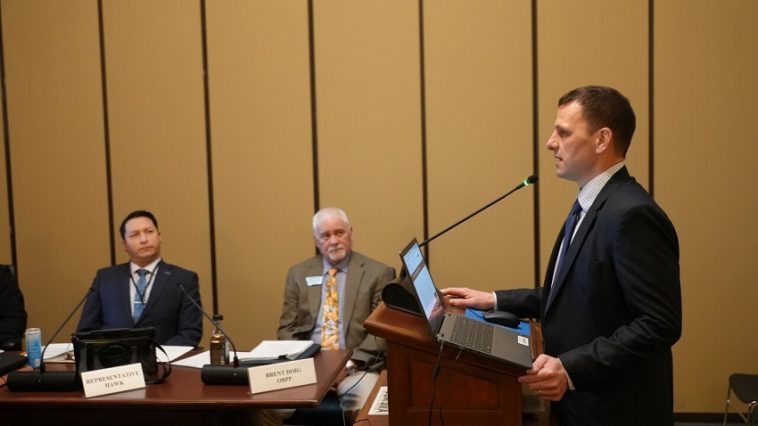Missoula, MT – The Montana judicial branch is requesting an increase in its budget to help address a rising caseload, particularly in Yellowstone County, where the number of criminal cases has seen dramatic growth over the past decade. During a presentation this week to the Joint Appropriations Subcommittee on Judicial Branch, Law Enforcement, and Justice, Chief Justice Cory Swanson outlined the branch’s request for additional funding and resources to help manage the increasing demand.
The judicial branch is seeking a budget of $137.6 million for the 2025-2027 biennium, marking an increase of $10.7 million, or 8.5%, from its current funding. Among the most pressing needs is the addition of three district court judges to serve the 13th Judicial District, which covers only Yellowstone County. Currently, the district is served by eight judges, but the branch’s administrators argue that the county’s caseload demands additional judicial resources.
Court filings in Montana have fluctuated over the past decade, with a low of 54,311 cases in 2017 and a high of 61,117 in 2020. However, criminal cases have been on a steady rise. In 2015, the state saw 10,707 criminal cases; by 2024, that number had risen to 13,854. Yellowstone County has experienced an even more dramatic increase, with criminal cases nearly doubling from 2,291 in 2015 to 4,012 in 2024.
Judge Rod Souza, a district judge in the 13th District, described how the workload has evolved since he started in 1999. “Back in ’99, a typical criminal law and motion calendar might have been two or three pages,” Souza explained. “Now, it’s not uncommon for the calendar to stretch to 10 or 12 pages, and what used to take an hour is now filling an entire morning.”
In 2024, the eight judges in the district handled over 11,000 cases, with the majority of the increase in criminal law and child abuse and neglect cases—both of which require considerable time and resources to resolve. To address the workload, a judicial branch study suggested a need for five additional judges in the 13th District, but the current budget proposal calls for three new judges to be appointed by 2026.
Swanson emphasized that while adding judges is necessary, the judicial branch is also exploring other strategies to manage the growing caseload more efficiently. “I’m working with the district judges in Yellowstone County to explore ways to manage their caseloads better, identify innovative solutions, and reduce the pressure on the system,” Swanson said.
Swanson, who was recently elected as Chief Justice in November and sworn into office in January, indicated that his focus over the next eight years would be to examine court operations statewide and implement long-term strategies to improve efficiency and outcomes. “After this session, my goal is to begin a comprehensive review of our court operations to identify opportunities for innovation and efficiency,” he added.
The Joint Appropriations Subcommittee is expected to begin voting on agency budgets next week, including the judicial branch’s request for additional funding. The outcome of these discussions will be closely watched as the state works to address the increasing demands on its judicial system.



